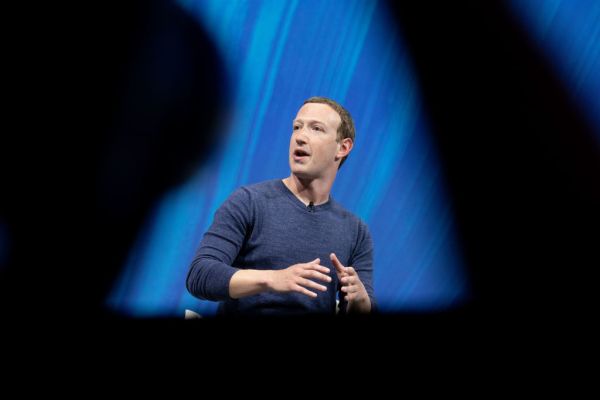What began as a relatively small effort by activist organizations to hold Facebook accountable for perceived policy failings has snowballed into a mass corporate backlash—and a rare moment of discomfort for a company that enjoys its status as one of tech’s untouchable giants.
As the #StopHateforProfit campaign continues to attract surprisingly mainstream corporations to its boycott of Facebook advertising, Mark Zuckerberg, Sheryl Sandberg and the newly back-at-Facebook Chief Product Officer Chris Cox sat down with the group on Tuesday. Other members of the policy team and and one more member of Facebook’s product team were also present for the meeting, which lasted a little over an hour.
Following the conversation with Facebook’s uppermost leadership echelon, leaders from four of the organizations spearheading the boycott called the chat an unequivocal disappointment. “Today we saw little and heard just about nothing,” Anti-Defamation League CEO Jonathan Greenblatt said.
Color of Change President Rashad Robinson criticized Facebook for “expecting an A for attendance” for participating in the meeting. Free Press co-CEO Jessica J. González also expressed that she was “deeply disappointed” in the company. NAACP President and CEO Derrick Johnson dismissed the company’s efforts as well, accusing Facebook of being “more interested in dialogue than action.”
The #StopHateforProfit campaign calls for companies to suspend their advertising on Facebook and Instagram for the month of July, citing recent policy choices by the company, including the decision not to touch a post by President Trump threatening racial justice protesters with violence.
The initiative is led by a handful of civil rights groups and other organizations, including the ADL, Color of Change, Sleeping Giants, the NAACP and the tech company Mozilla. The effort attracted surprisingly widespread support, with companies from Coca-Cola and Starbucks to Ford and Verizon agreeing to temporarily suspend their Facebook and Instagram ad budgets, joining a handful of outdoor brands that signed onto the campaign in late June.
The campaign’s goals include a demand that Facebook hire a “C-suite level executive” with civil rights expertise, an audit and refunds for advertisers who unknowingly had their ads run on content later removed for violating the platform’s terms of service and a call for Facebook to identify and shut down both private and public groups centered around “white supremacy, militia, antisemitism, violent conspiracies, Holocaust denialism, vaccine misinformation, and climate denialism.”
The group also critiques Facebook’s incentive structure for content on its platform and how the company’s political relationships, like that with the Trump administration. “Facebook is a company of incredible resources,” the boycott’s organizers wrote. “We hope that they finally understand that society wants them to put more of those resources into doing the hard work of transforming the potential of the largest communication platform in human history into a force for good.”
While the group doesn’t believe that other tech platforms are blameless, it focused efforts on Facebook due to the company’s sheer scale and outsized impact on discourse both on and off the platform. “The size and the scope of it simply has no point of comparison,” Greenblatt said, citing the social network’s 2.6 billion users.
“We’re tired of the dialogue, because the stakes are so incredibly high for our communities,” González said, referring to the pandemic’s disproportionate negative health outcomes for people and color and the ongoing civil rights uprising following the killing of George Floyd. González also mentioned that Facebook profits from political ads “dehumanizing” brown and Black people in the U.S.
In the midst of renewed public scrutiny, Facebook announced last week that it would crack down on so-called “boogaloo” groups inciting anti-government violence, though boogaloo content not linked to violent threats may remain up on the platform. The announcement came the same day that a group of Democratic senators pressed the company on those groups—which it suggests to users via algorithms.
“We come together in the backdrop of George Floyd” Johnson said of the group’s campaign against Facebook, noting that communities are rightfully moving to hold companies to higher standards on issues of race and race-based hate.
“We are simply saying, keep society safe. Keep your employees safe. And help us protect this democracy,” Johnson said.
[ad_2]
Source link


